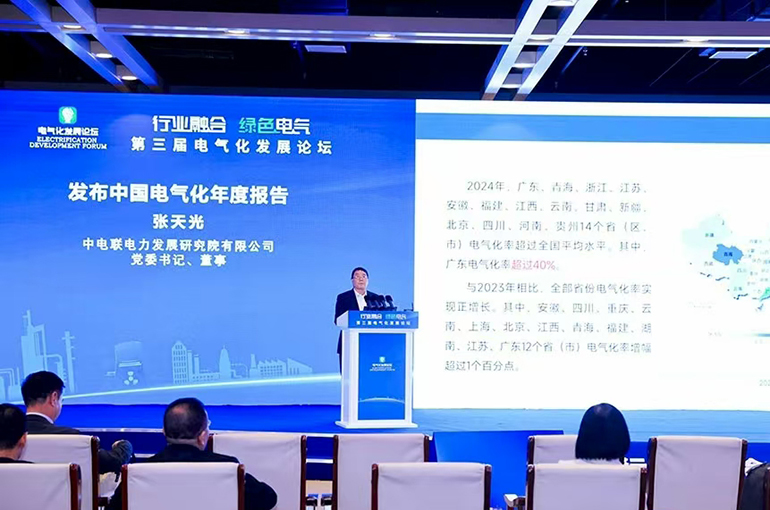 China’s Electrification Rate Higher Than in Major Western Countries, Report Says
China’s Electrification Rate Higher Than in Major Western Countries, Report Says(Yicai) Sept. 26 -- China’s electrification rate has continued increasing and is higher than in major developed economies in Europe and the United States, according to a new report.
The national electrification rate was 28.8 percent last year, up 0.9 percentage points from the previous year, said the report, which was released by the China Electricity Council at the 2025 New Power System Development (Chongli) Forum on Sept. 24.
The rate is set to reach around 35 percent by 2030, the report also said, which would be 8 to 10 percentage points higher than the average level of member countries of the Organization for Economic Cooperation and Development.
The Guangdong-Hong Kong-Macao Greater Bay Area took the lead nationwide with an electrification rate of 41.7 percent last year, similar to that of Japan. The rates in the Yangtze River Delta region, the Chengdu-Chongqing Economic Circle, and the Beijing-Tianjin-Hebei Agglomeration were 34.1 percent, 29.5 percent, and 21.4 percent, respectively.
The industrial sector performed outstandingly, the report said, with an electrification rate of 27.7 percent last year. The high-tech and equipment manufacturing industry reached 64.7 percent, and the rate for the consumer goods manufacturing industry rose 0.8 percentage points to 46 percent.
The electrification rate refers to the proportion of electricity in final energy consumption and is an important indicator for measuring energy transition. With the accelerated green electrification process, China’s total electricity consumption by 2060 will double that in 2020, and the electrification rate will exceed 65 percent, said Yang Kun, executive vice chairman of the China Electricity Council.
Industry remains the key battlefield, accounting for 64 percent of total electricity consumption last year, said Zhu Zhang, a second-level inspector with the Ministry of Industry and Information Technology.
Further progress will be advanced by innovation-driven development, Zhu said, adding that technologies such as electric furnace steelmaking will be promoted in high energy-consuming industries. Increased levels of industrial substitution and improved ecosystems will also help, Zhu noted.
Editor: Tom Litting